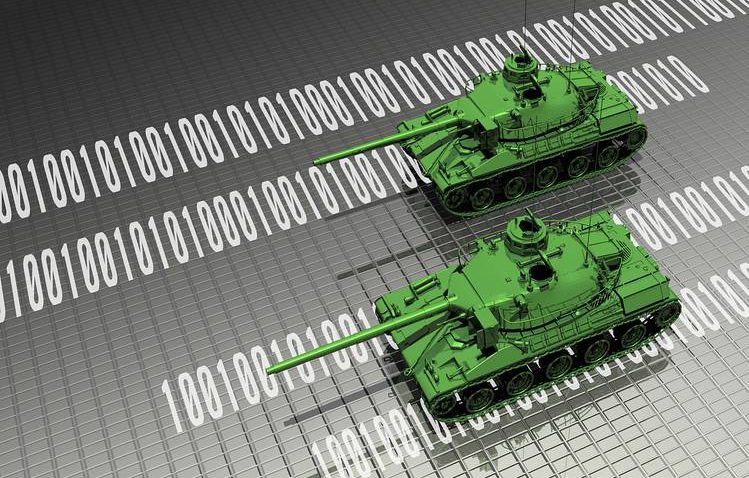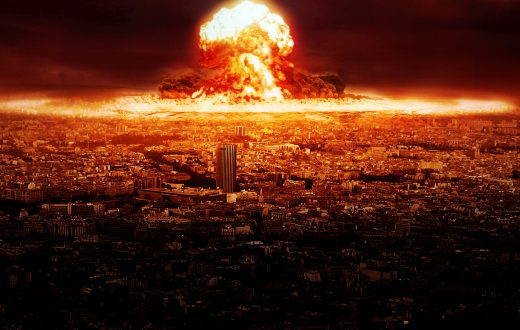Hobbes once wrote that ” Man is a wolf to man “. This English philosopher stresses an eternal truth : men will never live in a peaceful world. They have fought the one with the other. Athenians and Spartans used to wield shield and swords. French and English did fight with bows and more rarely, with cannons. Six centuries later, soldiers of the XXth century firmly held their rifles and helmets. Technic changes Man doesn’t.
The atomic revolution
At the end of the Second World War, the US made up a weapon able to wipe out hundreds of thousands of lives in less than a minute. Suddenly, global conflicts have been made impossible. Man did find a way to drastically disrupt the ancestral path to solve its issues : war. Since the detonation of Little Boy and Fat Man, more than 70 years ago, it has to be said that atomic bombs have become infinitely more powerful and dangerous. Global destruction is not fiction anymore. Many argues that this excessive power is the only reason explaining the relative prolonged peace we’re currently living in. We could discuss this position for hours but this is not the point of this article.
What’s the relation with cyber threats ?
At first sight, there isn’t any correlation between those two ways of fighting. Let’s have a look on this fascinating, as well as scary, topic. The cyber attack that targeted Estonia in 2007 is a pretty good starting point. After a deemed anti-Russian act committed by the Estonian government, the State has been hit by a massive wave of cyber-attacks. They have paralyzed the country for hours and prevent public websites from functioning. More than 10 years later, analysts admit that the strikes did not cease because of any kind of counter attacks or defense system. Indeed, the offensive stopped because the strikers were willing to stop. Many reports put the light on Russia but it seems very complicated to demonstrate the direct implication of Moscow.
How did they attack ?
To sum up, strikers has prioritized simplicity and efficiency : the DDOS attack. The attacker floods a network to prevent it from operating. Thousands or even millions of people and computers connect to the same service so that it ceases to function. Of course, there are now well-know ways to counter such cyber attacks.
A paradigm shift ?
The atomic wave has created massive destruction. Given this fact it’s hard to imagine cyber-attacks as more dangerous that an atomic bomb. From a philosophical perspective, I think it can be. Children, teenagers and adults currently surf on internet everyday. There are the equivalent of nearly 5.5 billion Google searches per day! Why ? Because we use internet as our first communication tool. We socialize on Facebook, react on Twitter and get inform on Google news or other numeric newspapers. More than a thousand of years before Hobbes, Aristotle taught us that ” Man is by nature a social animal “. It means that the relationships we build with our peers are what made us human beings. Thus, it is no exaggeration to state that internet partly carries this inherent aspect of human kind.
Conclusion
The atomic bomb is the last tool made by men to fight and destroy. This weapon, albeit incredibly powerful, is in line with the continuity of artillery and bombings that killed millions during the two World Wars. Paradoxically, cyber-attacks kill less but they might be far more dangerous than atomic bombs. They did affect the very essence of human being : communication with its peer.








